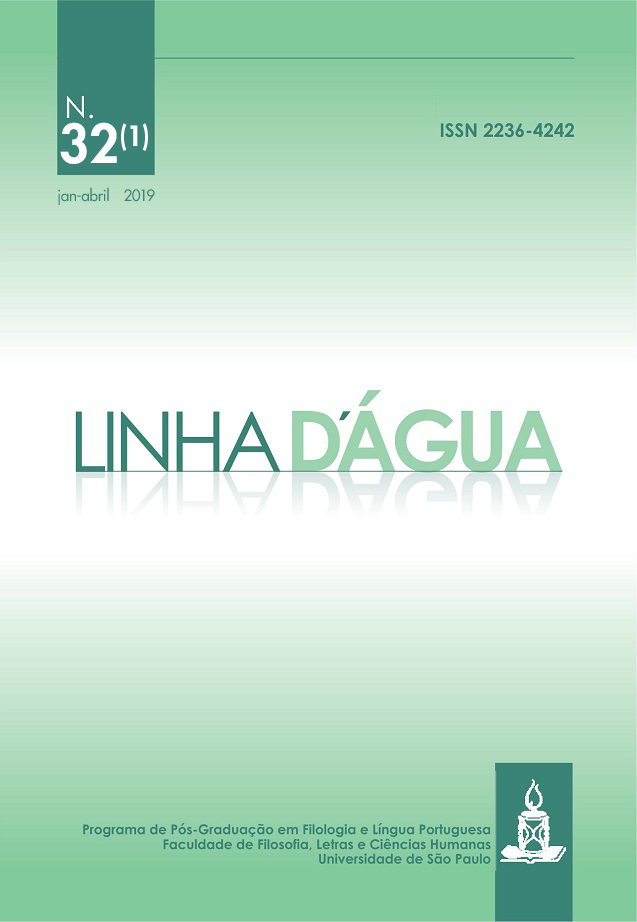La falacia del historiador Whig
el caso de Noam Chomsky y su linguística cartesiana (1966)
DOI:
https://doi.org/10.11606/issn.2236-4242.v32i1p59-79Palavras-chave:
Chomsky, História, Linguística, Interpretação whig, HistoriografiaResumo
Nosso trabalho tem duplo propósito. De um lado, analisar o “modo de historicização” (Auroux, 2006) da obra Cartesian Linguistics (1966), de Noam Chomsky, uma obra de forte motivação propagandística, em que o autor procurou interpretar a evolução de certas ideas que, segundo ele, agiam sobre a linguagem como pano de fundo da gramática gerativa; como observamos, Chomsky incorreu na “falácia do historiador whig” (Butterfield, 1931; Kragh, 1987), ao avaliar eventos passados pela ótica de seu tempo, dando lugar a uma representação absolutamente seletiva, anacrônica, auxiliar e deliberadamente funcional à sua proposta teórica. De outro lado, procuramos recuperar o contexto em que a obra foi publicada, cuja inadequação metodológica foi tão marcante em termos historiográficos que contribuiu para a abertura de um debate específico (Aarsleff, 1970; Koerner, 1978; Newmeyer, 1980; entre outros), pelo qual é possível identificar a emergência e consolidação dos fundamentos epistemológicos da historiografia da linguística.
Downloads
Downloads
Publicado
Edição
Seção
Licença
Copyright (c) 2019 Linha D'Água

Este trabalho está licenciado sob uma licença Creative Commons Attribution-NonCommercial 4.0 International License.
A aprovação dos manuscritos implica cessão imediata e sem ônus dos direitos de publicação para a Linha D'Água. Os direitos autorais dos artigos publicados pertencem à instituição a qual a revista encontra-se vinculada. Em relação à disponibilidade dos conteúdos, a Linha D'Água adota a Licença Creative Commons, CC BY-NC Atribuição não comercial. Com essa licença é permitido acessar, baixar (download), copiar, imprimir, compartilhar, reutilizar e distribuir os artigos, desde que para uso não comercial e com a citação da fonte, conferindo os devidos créditos autorais à revista.
Nesses casos, em conformidade com a política de acesso livre e universal aos conteúdos, nenhuma permissão é necessária por parte dos autores ou do Editor. Em quaisquer outras situações a reprodução total ou parcial dos artigos da Linha D'Água em outras publicações, por quaisquer meios, para quaisquer outros fins que sejam natureza comercial, está condicionada à autorização por escrito do Editor.
Reproduções parciais de artigos (resumo, abstract, resumen, partes do texto que excedam 500 palavras, tabelas, figuras e outras ilustrações) requerem permissão por escrito dos detentores dos direitos autorais.
Reprodução parcial de outras publicações
Citações com mais de 500 palavras, reprodução de uma ou mais figuras, tabelas ou outras ilustrações devem ter permissão escrita do detentor dos direitos autorais do trabalho original para a reprodução especificada na revista Linha D'Água. A permissão deve ser endereçada ao autor do manuscrito submetido. Os direitos obtidos secundariamente não serão repassados em nenhuma circunstância.











